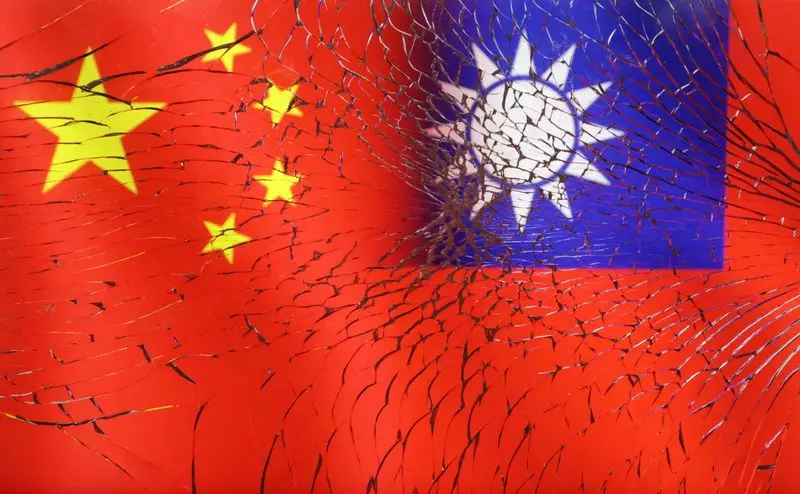China has recently announced the suspension of tariff cuts on certain chemical imports from Taiwan, claiming that the island has violated a trade agreement between the two nations. This move is seen as part of China’s ongoing efforts to exert pressure on Taiwan in the lead up to the presidential and parliamentary elections scheduled for January 13th. As China considers Taiwan as its own territory, it has been pushing for the acceptance of its sovereignty claims, which has resulted in tension between the two nations.
Taiwan’s government and the ruling Democratic Progressive Party (DPP) have repeatedly accused China of interfering in the upcoming elections. They claim that China is using various tactics, such as military threats and co-opting Taiwanese politicians, to influence the outcome to its advantage. This accusation highlights the deep-rooted political tension that exists between the two governments.
China’s Finance Ministry has justified its decision to suspend tariff cuts by citing “discriminatory prohibitions and restrictions” that Taiwan has imposed on Chinese exports, which allegedly violate a trade deal that was established in 2010. The ministry has also called on Taiwan to lift these trade restrictions and take effective measures to improve trade relations between the two. This move by China indicates its determination to enforce its trade demands and assert its authority over Taiwan.
China has accused Taiwan of creating trade barriers that are contrary to both World Trade Organization (WTO) rules and the 2010 trade agreement. This accusation places Taiwan in a delicate position, as it now faces the challenge of meeting the demands of China while also abiding by global trade regulations. Taiwan has responded by urging China to halt its “political operations” regarding the trade probe and expressing its willingness to engage in discussions to resolve the issue.
The suspension of tariff cuts by China has significant implications for both nations. Taiwan’s reliance on chemical imports from China could lead to higher costs for Taiwanese businesses, potentially affecting their competitiveness in the global market. Moreover, the escalating tension between the two governments could further strain their already fragile relationship and hinder efforts to improve cross-strait relations.
With the presidential and parliamentary elections approaching, it is crucial for both Taiwan and China to find a way to ease tensions and prevent further escalation. Dialogue and diplomacy will be key in resolving the trade dispute and addressing the broader political issues. Both nations must be willing to engage in constructive discussions and find common ground to ensure stability and prosperity in the region.
China’s decision to end tariff cuts on chemical imports from Taiwan is a clear indication of its determination to assert its authority and influence over the island. This move, coupled with accusations of trade violations, has the potential to negatively impact the Taiwanese economy and strain cross-strait relations. As the elections draw near, it is important for both nations to prioritize dialogue and diplomatic efforts to find a resolution and mitigate further conflict or instability in the region.

